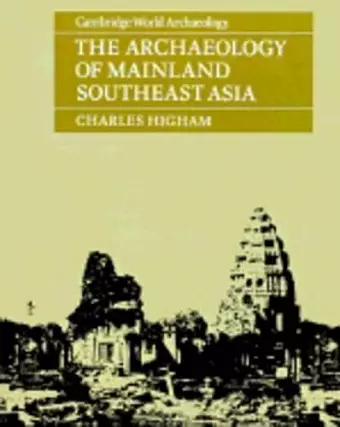The Archaeology of Mainland Southeast Asia
From 10,000 B.C. to the Fall of Angkor
Format:Paperback
Publisher:Cambridge University Press
Published:11th May '89
Currently unavailable, and unfortunately no date known when it will be back

Southeast Asia was the scene of one of the world's major civilisations, that of Angkor, until it was sacked in the early fifteenth century. The origins of Angkor were barely known until recent archaeological excavation and field research began to reveal the region's dynamic development and to raise new questions to serve in its understanding. This important new synthesis focuses on the social world of early mainland Southeast Asia: Thailand, Vietnam, Kampuchea, Laos and adjacent areas. The book begins when the area was occupied 12,000 years ago by hunters and gatherers. The author stresses the importance of sedentism and domestication. These encouraged the spread of coastal communities into the interior valleys. Particular relevance is seen in the exchange of valuables, including bronze, as symbols of status. The origins of civilisation, for long assumed to result from Indian expansion in the region, are seen as rooted in local changes, along with the selective adoption of Indian religious and political ideas within coastal cheifdoms. In bridging the gap between prehistory and history, this book will appeal not only to archaeologists but to those interested in the general history, culture and arts of Asia.
'We now, at last, have a balanced and authoritative view of the prehistory of the mainland of Southeast Asia, presented by an author who must be regarded as one of the most experienced archaeologists now working in the region … Higham has done the discipline a great service, and this book deserves a wide readership. It would be very hard, using current knowledge, to improve upon it.' Dr Peter Bellwood, Quarterly Review of Archaeology
ISBN: 9780521275255
Dimensions: 235mm x 191mm x 21mm
Weight: 690g
404 pages